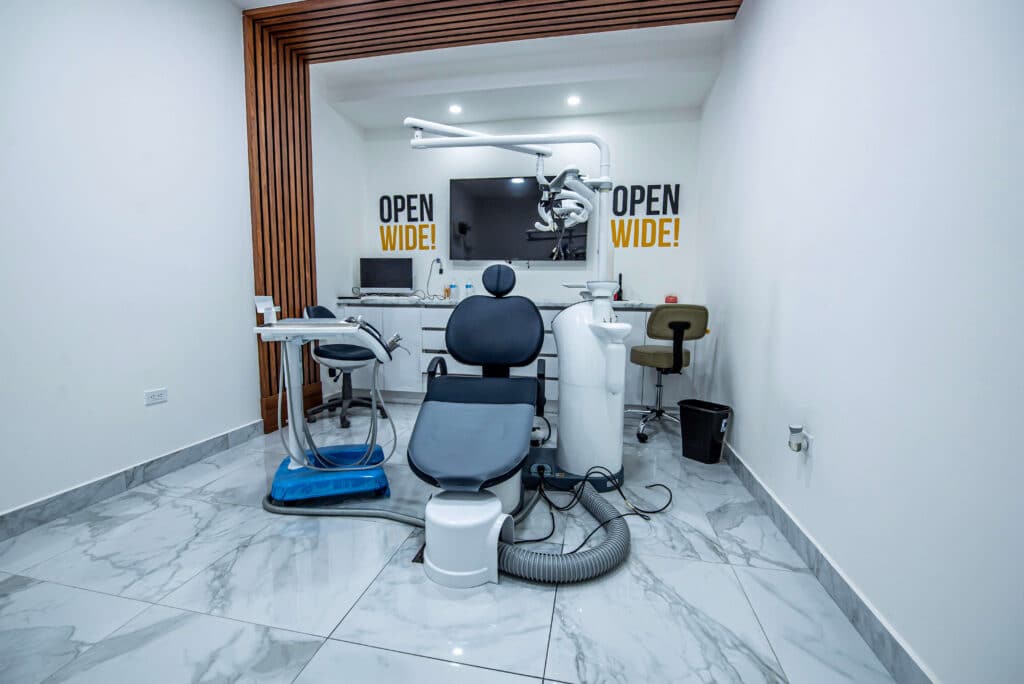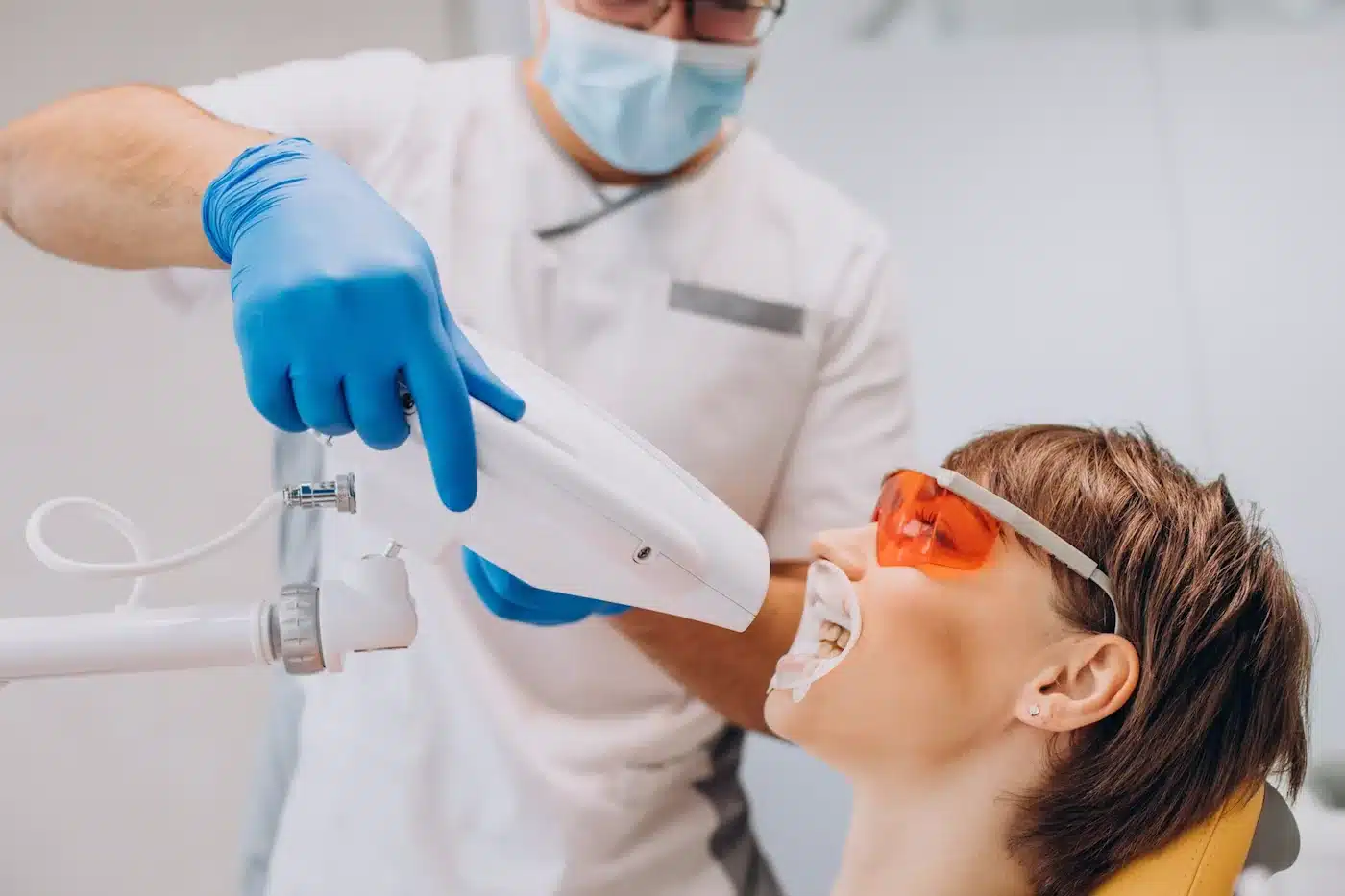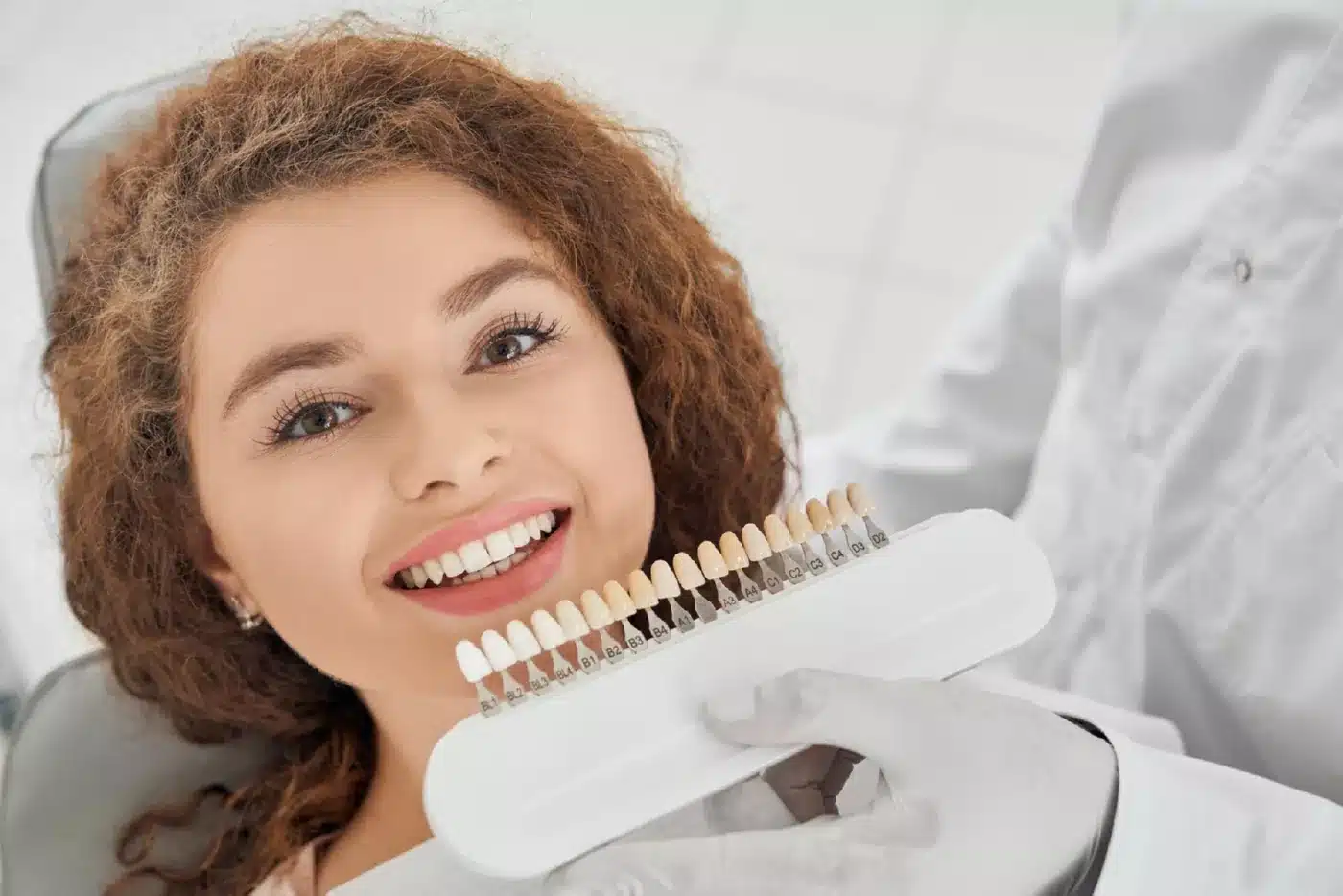Teeth Whitening in Los Algodones, Mexico
Get a laser teeth whitening treatment at a great price in our dental clinic in Los Algodones Mexico
From
$180 USD
Laser whitening
From
$280 USD
Zoom whitening
The majority of patients who receive tooth whitening treatments show better oral health signs.
To maintain the results of the procedure, it is important to visit the dentist regularly for professional teeth cleaning, as well as pay good attention to oral hygiene to remove tartar and avoid new stains.
It has been proved that whiter teeth will improve your self-confidence.
Don’t be ashamed of smiling or talking, and feel more secure about how you present to the world.
Laser dental whitening offers results after the first session, making your teeth 5 to 8 times whiter. Generally, a full teeth whitening treatment shouldn’t take more than 4 sessions.
During your initial consultation, the specialist will help you choose the colors and shades of white so your smile looks bright and beautiful without seeming unnatural.
In Dental del Rio we offer you top-notch dental care at the best price so you can improve your dental health and quality of life without breaking the bank.
Our dental facility is equipped with the latest technology and some of the best Mexican dentists to cover all your dental needs.
We can provide you with several quality dental services in Los Algodones, including dental implants, fillings, dental crowns, extractions, root canals, dentures, and laser whitening, of course.
Get treated by world-class dental specialists
Our skilled dentists are certified and part of the American Dental Association.
At Dental del Rio we are proud of our exceptional team of professionals who will provide you with high-quality dental care. Our cosmetic dentists will guide you during the whitening treatment and advise you on how to get the best possible results for your particular case.
Teeth whitening in Los Algodones is way cheaper than in other dental clinics
The price of this procedure is one of the first concerns that patients have, but don't worry, the teeth whitening cost in our clinic in Los Algodones is only a fraction of what you would pay in your local dental clinics.
With us, you will pay $180 for laser teeth whitening and $280 for Zoom teeth whitening, while in dental clinics in Arizona or California, you would pay around $900.
Located near the US border
Los Algodones is a border town best known for its dental tourism. Every year we receive thousands of dental tourists from the USA and Canada who want affordable dental work.
Bilingual staff available
Our staff is completely bilingual.

Hear It Directly From Our Patients: Their Dental Del Rio Experiences
Am I a good candidate for laser teeth whitening?
Many patients can benefit from this treatment, during your first visit your dentist will determine if you are a good candidate for teeth whitening. These are some things to consider.
Teeth whitening can only be done in natural teeth since the bleaching process won't change the color of veneers, crowns, or dental implants.
To ensure a good result, the patient should have healthy teeth and gums. Teeth whitening can't be done on a damaged tooth.
It is not recommended to perform teeth whitening on pregnant women.
It is important to ensure the patient is not allergic to the bleaching agents.
It is possible to experience slight tooth sensitivity for a few days after the procedure. If the sensitivity remains, contact your dentist.
How to take care of your teeth after laser teeth whitening treatments?
The results of laser teeth whitening are not permanent, according to the American Dental Association, they can last from 6 months to 2 years. With good care, your teeth will maintain most of their brightness after that period.
Here's what you should and shouldn't do to maintain that white smile:
Brush your teeth after every meal to prevent plaque buildup.
Visit your dentist for a professional cleaning at least once a year.
Avoid constantly drinking dark beverages like red wine and dark sodas, as well as food that can cause stains in your teeth, like beets or things with a high amount of food coloring.
C. Encino, 21970 Vicente Guerrero, B.C. Los Algodones, México
Mon-Fri: 8:00am – 4:00pm. Sat: 8:00am – 2:00pm

Professional teeth whitening is one of the most popular and demanded cosmetic dentistry procedures. This procedure helps patients restore stained or discolored teeth by using a combination of bleaching gel and a special light.
Many reasons cause stained teeth. Aging, for example, causes the teeth to turn greyish. Other things like trauma, tooth decay, smoking, some medications, and the regular consumption of certain foods and drinks can cause discoloration or dark stains that can’t be removed by brushing or a simple dental cleaning.
Professional teeth whitening is an efficient, fast, and non-complicated way to remove stains and bring back the smile’s beauty.
Many teeth whitening procedures are available, but we can separate them into two categories: professional procedures and in-home procedures. The second category includes multiple options, like whitening toothpaste or whitening strips, that can remove small stains over time as long as the patients are consistent.
Professional laser teeth whitening treatments offer immediate results without causing damage to the tooth’s enamel. This procedure is done with a whitening gel that contains a high percentage of hydrogen peroxide and a special light that can be LED, halogen, or UV.
The light energy activates the oxygen molecules in the hydrogen peroxide, allowing it to remove stains and improve the color of the teeth quickly and effectively.
During the procedure, the gums will be protected with a special rubber to avoid gum irritation or burns. Teeth whitening is a completely painless treatment, with no anesthesia required. Depending on each case and the color that the patient wants to achieve, the treatment plan could take a few sessions, and each one should be around 1 hour long.

In our Los Algodones dental clinic, our cosmetic dentistry specialists will create a treatment plan adapted to your needs, and you can choose between two types of teeth whitening procedures.
Laser teeth whitening
Laser whitening is an in-office whitening treatment that can remove stains and improve the teeth’s brightness by using a bleaching gel and a strong LED light that increases the effectiveness of the whitening agents.
Zoom teeth whitening
Zoom teeth whitening works the same as regular laser teeth whitening, but the difference is the type of laser light used. Zoom light is more powerful, which means that it will take fewer sessions to achieve the desired results.